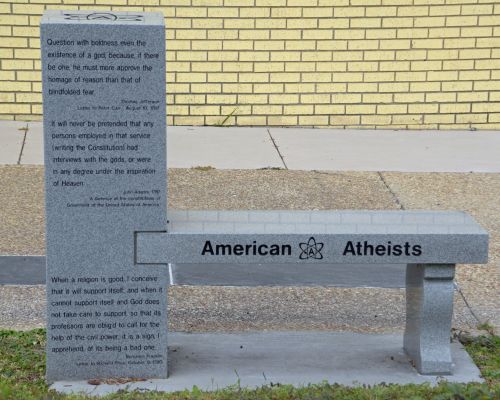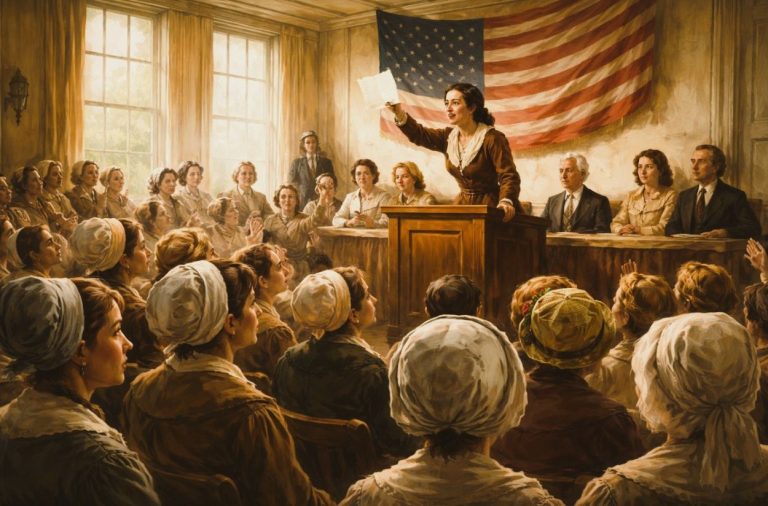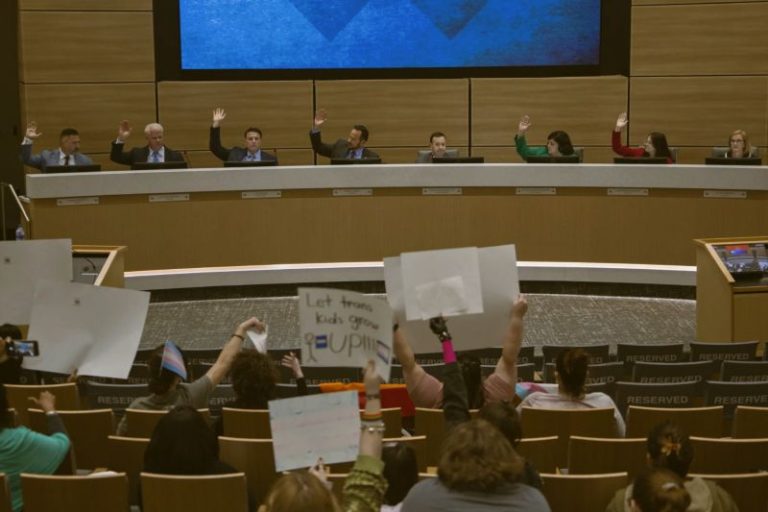

Studies show that discrimination against atheists remains a persistent issue, even in societies that champion religious freedom.

By Matthew A. McIntosh
Public Historian
Brewminate
Introduction
Atheists and humanists continue to face widespread discrimination across multiple regions of the world. Nonbelievers encounter legal penalties, state-backed hostility, or severe social stigma simply for expressing their lack of religious belief. Discrimination against atheists is not limited to marginal cases but forms a consistent trend in many societies.
In the United States, discrimination takes a different but still significant form. Atheists and Muslims report the highest levels of religious discrimination among major groups. Many nonbelievers conceal their identity to avoid social or professional consequences as large numbers of American atheists hide their nonbelief for fear of backlash. These pressures affect daily life.
This environment exists despite constitutional protections for freedom of conscience. Some state constitutions still include provisions barring atheists from holding public office, even though such bans have been rendered unenforceable by federal law. The text of these provisions reflects a historical legacy that continues to influence public attitudes. Studies of social stigma show how prejudice against atheists persists in workplaces, classrooms, and community settings.
The combination of global persecution, domestic stigma, and political rhetoric has created a moment in which discrimination against atheists deserves renewed attention. Reports show that nonbelievers face unique challenges that often remain overlooked in discussions of religious freedom. As political movements advance policies that privilege certain forms of belief, the rights of atheists become increasingly tied to broader debates about democracy, equality, and the meaning of conscience in public life.
Global Landscape of Discrimination
International monitoring groups have documented a wide range of laws and practices that restrict the rights of atheists around the world. Nonbelievers in several countries face penalties that include restrictions on speech, loss of civil rights, and in severe cases even criminal sanctions. These measures often emerge from legal systems that elevate religious identity as a component of citizenship, which leaves atheists with limited protections when they publicly express their beliefs.
Further evidence of these patterns highlights how humanists and atheists endure systemic discrimination tied to laws that prioritize religious conformity. The article outlines cases where governments use blasphemy statutes, loyalty requirements, or religious registration systems to suppress dissenting viewpoints. These measures create environments where social stigma and legal pressure reinforce one another, making it difficult for nonbelievers to participate in public life without risk.
The combination of legal restrictions and widespread social attitudes contributes to a global climate where atheism can carry severe consequences. Individuals have been targeted by both government agencies and community groups, illustrating how discrimination is not confined to state action but also arises from cultural norms. These conditions show that the challenges faced by atheists extend beyond philosophical disagreements and into tangible threats that affect safety, employment, and access to public services.
Discrimination in the United States
Research from the University of Washington shows that atheists experience some of the highest levels of religious discrimination in the country. The university’s analysis found that both Muslims and atheists reported significantly more incidents of prejudice than members of other major religious groups, as detailed in their 2020 study. These findings indicate that anti-atheist sentiment is not an isolated trend but persists across multiple social settings, including workplaces and schools.
Atheists frequently rank among the least trusted groups in national opinion polls. Their article on discrimination against nonbelievers highlights examples of exclusion from community organizations, political hostility, and assumptions that atheism is incompatible with moral decision-making. There is a broader context for understanding why many atheists choose not to disclose their beliefs publicly.
Legal barriers, although unenforceable today, still shape perceptions of atheists. Several state constitutions contain historical clauses that bar atheists from holding public office. These provisions remain on the books despite being invalidated by federal law, and factual documentation of these texts is widely available in public records summarized. Even though these bans cannot be enforced, their continued presence signals a long-standing institutional bias that influences public attitudes about who is considered fit for leadership.
Many atheists respond to this environment by concealing their nonbelief. Substantial numbers of American atheists hide their views out of fear of negative consequences in their personal or professional lives. Concealment is especially common in regions where religious identity is closely tied to community acceptance or political affiliation.
Social and professional pressures also contribute to ongoing discrimination. Atheists may face unfair treatment in workplaces that assume religious affiliation is the norm]. discrimination against atheists in the United States remains both widespread and multifaceted, shaped by cultural expectations, institutional remnants, and political rhetoric.
Social Stigma, Stereotypes, and Public Perception
Academic research shows that negative stereotypes about atheists remain deeply embedded in American culture. A study published through the National Conference on Undergraduate Research examined how perceptions of atheism influence judgments of trustworthiness, morality, and social belonging. The findings, presented in the University of North Carolina’s NCUR paper, document widespread assumptions that nonbelievers lack the moral foundations associated with religious identity. These stereotypes shape decisions in employment, education, and community life, often without explicit acknowledgment from those who hold them.
Atheists are frequently regarded with suspicion in public opinion polling and are sometimes viewed as outsiders to American civic life. Nonbelievers encounter questions about values, patriotism, or ethical commitments based solely on their lack of religious affiliation. This reinforces the idea that social stigma remains a major barrier to equal treatment.
The effects of this stigma often appear in everyday interactions. Atheist students and employees may face exclusion or discrimination in environments where religious identity is assumed to reflect shared values. Nonbelievers are pressured to participate in religious activities or conceal their identity to avoid conflict. These examples show how discrimination can occur even in institutions that formally prohibit unequal treatment.
Social pressure also shapes how atheists present themselves publicly. Many nonbelievers choose to hide their identity to avoid negative reactions, a strategy that reflects the persistence of stigma in both personal and professional settings. Concealment becomes a form of self-protection in communities where atheism is viewed with distrust or hostility.
These patterns demonstrate that discrimination against atheists is not limited to formal barriers or explicit prejudice. It is reinforced by cultural assumptions, social expectations, and institutional practices that define religious belief as a default and nonbelief as an exception. Together, these dynamics create an environment in which atheists face unique challenges to visibility, acceptance, and equal participation in public life.
Political Context and the Threat of Backsliding
Political developments in the United States have created new concerns about the future of religious freedom for nonbelievers. The Project 2025 risk narrowing the definition of religious liberty in ways that privilege specific religious viewpoints. Policies elevating one religious tradition can limit the rights of those who do not subscribe to any faith. This includes atheists, whose legal and social protections depend on broad interpretations of freedom of conscience.
Proposals connected to Project 2025 could strengthen government influence over religious expression in public institutions. Their documentation explains that these ideas pose risks not only to minority religious groups but also to those who identify with no religion. For atheists, any shift that binds civic identity to religious belief can make discrimination more likely, especially in regions where political rhetoric already frames secularism as incompatible with community values.
These political debates occur alongside the ongoing influence of outdated constitutional provisions that still appear in several state documents. Although unenforceable, these clauses barring atheists from public office contribute to a climate where nonbelievers are viewed as less legitimate participants in public life. The continued presence of these provisions underscores how political identity and religious identity often overlap in ways that disadvantage atheists.
The broader consequence of these trends is a political environment that does not always treat secular identity as protected within the same framework as religious identity. When policy proposals emphasize religious conformity or elevate certain religious perspectives, atheists face a higher risk of exclusion from civic decision-making. Political movements that narrow the scope of religious freedom often reduce space for nonbelievers, making legal and social discrimination more likely.
Why This Matters
Discrimination against atheists raises broad concerns about equal protection and freedom of conscience. Constitutional rights are designed to protect individuals regardless of belief, yet persistent stigma and political rhetoric show that nonbelievers are often treated as exceptions rather than full participants in public life. Bias can shape everything from social interactions to employment opportunities. These patterns suggest that discrimination is not merely cultural but also structural.
The public pressure to conceal nonbelief. Many atheists choose not to disclose their views because they fear negative consequences. The act of hiding one’s belief, or nonbelief, reflects a social environment that punishes honesty about secular identity. This raises concerns about whether the United States is meeting its commitments to protecting individual autonomy and personal expression.
Legal inconsistencies also contribute to unequal treatment. Outdated clauses in state constitutions that bar atheists from public office, although unenforceable, associate civic fitness with religious belief. These provisions signal a historical willingness to exclude nonbelievers from political participation. While federal law overrides these bans, their continued presence suggests that legal equality still depends on patchwork reforms rather than a unified commitment to secular rights.
Social stigma likewise plays a significant role in shaping public life for atheists. Negative stereotypes influence judgments about morality and trustworthiness. These attitudes affect hiring decisions, educational experiences, and interpersonal relationships. When large segments of the public view nonbelievers as less trustworthy, discrimination becomes easier to rationalize and harder to challenge.
Political rhetoric can amplify these problems. Policy proposals associated with Project 2025 could narrow the interpretation of religious freedom in ways that privilege certain faith traditions. When political leaders frame secular identities as incompatible with national values, they reinforce negative stereotypes and embolden discriminatory practices. This creates a climate where protections for atheists depend not on constitutional principles but on shifting political priorities.
These patterns reveal a need for stronger and more explicit protection of secular individuals. The sources you provided show that discrimination against atheists is not isolated or incidental. It is woven into social expectations, legal remnants, and political debates. Addressing these issues requires acknowledging that freedom of conscience applies equally to those who believe and those who do not. Without that recognition, equality remains incomplete, and constitutional protections remain unevenly applied.
Conclusion
The evidence presented across global and national studies shows that discrimination against atheists remains a persistent issue, even in societies that champion religious freedom. Reports document international environments where nonbelievers face legal penalties or widespread social hostility, while university research in the United States highlights how stigma shapes daily life for those who identify with no religion. These findings reveal a pattern in which atheists must navigate political, cultural, and institutional barriers that continue to affect their safety, visibility, and participation in public life.
The disparity between constitutional ideals and lived experience underscores why this issue deserves renewed attention. Studies show that discrimination forces many atheists to hide their identity, while outdated clauses in state constitutions and political proposals that privilege certain beliefs further narrow the space for secular voices. Shifts in political rhetoric can heighten these risks by framing nonbelief as incompatible with civic belonging.
As these pressures grow, the need for clear and inclusive protections becomes more pressing. Discrimination against atheists is rooted in long-standing attitudes that influence laws, social norms, and political debates. Meeting this challenge requires acknowledging that freedom of conscience applies equally to believers and nonbelievers. Only then can the ideal of religious liberty include everyone, regardless of faith or the choice to live without one.
Originally published by Brewminate, 11.27.2025, under the terms of a Creative Commons Attribution-NonCommercial-NoDerivatives 4.0 International license.


